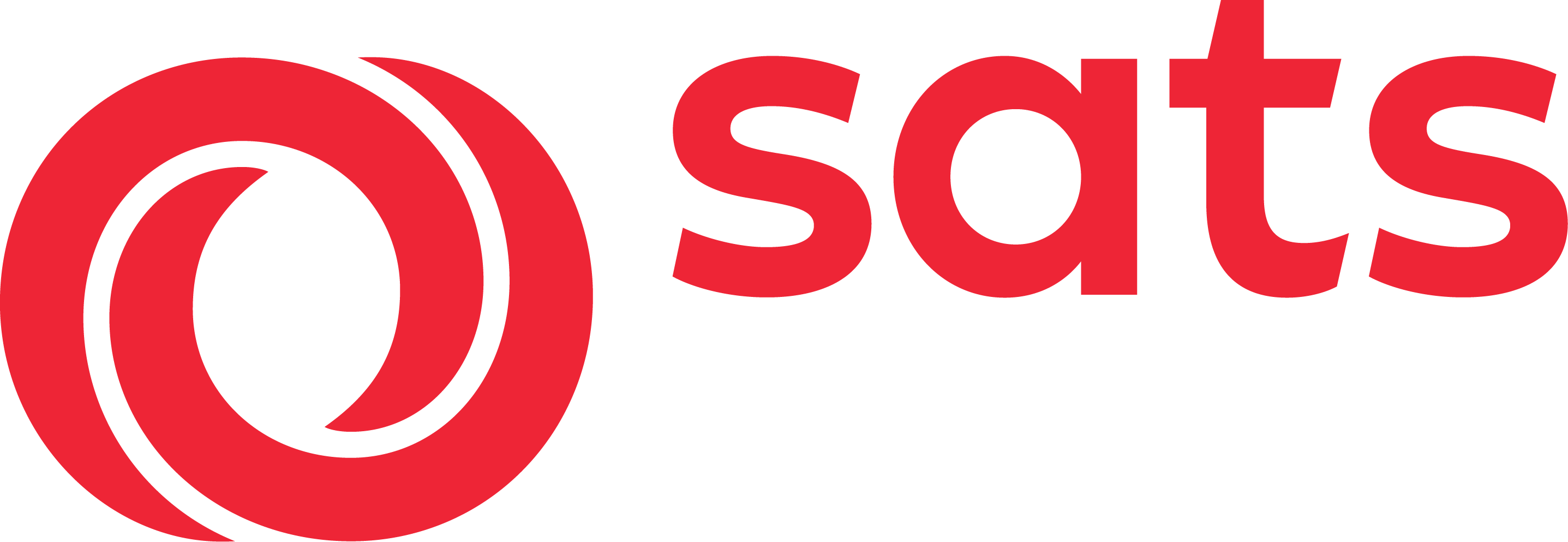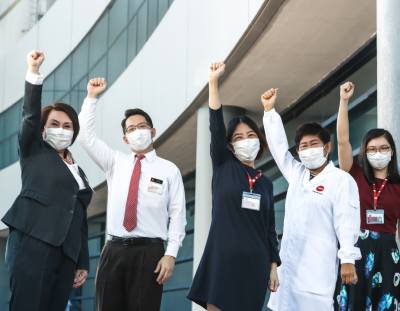Turning food waste into value
The WasteMaster at SATS In-Flight Catering Centre 1 converts organic waste into useful products, such as fertiliser, fish feed, or energy.
Organic waste from the kitchen and certain inbound flights is put into the machine and processed using a proprietary reactive oxygen technology, meaning the system does not require water, heat, bacteria, or chemicals. The substrates undergo additional treatment at a bio-refinery plant, and are used as fish feed to grow tilapias; the waste nutrients from the fish are then used as fertiliser for growing vegetables.
This collaboration has produced encouraging outcomes thus far, with the Singapore Food Agency verifying that vegetables produced through this process are both nutritious and pesticide-free.
Learn More
Reducing wastage across our operations
Our food waste management systems help to reduce the volume of avoidable waste, unnecessary disposal and improve efficiencies, while we work on creating more sustainable cycles of renewal and regeneration. For example, SATS TFK is targeting to save JPY174 million annually by implementing an AI-enabled system to track food waste generated in kitchens.
We are also exploring and implementing initiatives to turn food and material waste into sources of energy such as using eco-digesters to convert food waste into refuse-derived fuel additives, recycled water, and fertiliser.
In our constant search for innovative solutions to achieve ‘closed-loop’ waste treatment, SATS initiated a proof-of-concept trial for an anaerobic digestion system at our catering facility in Singapore. It is able to convert waste to three different forms of energy: biogas, waste heat and digestate by-products.
Introducing innovative and sustainable packaging
Developing sustainable packaging requires the collaboration of stakeholders in our ecosystem, such as our customers, suppliers and partners. The SATS Global Innovation Centre also works with business units at SATS to develop sustainable and innovative food packaging solutions for our customers through the Open Innovation Platform.
We combine our culinary and technical expertise to collaborate on the design and creation of food packaging using natural materials that reduces the use of single-use plastics.
Our innovation goes beyond the packaging material, and we also look into the downstream disposal methods and treatment of these packaging waste, where we take a holistic approach to waste management.
Uphold food safety
Food safety is of utmost importance to SATS. We seek to support our customers’ health and well-being of communities through safe and quality food.
We manage our kitchens in accordance with stringent international guidelines and food safety regulations, including International Flight Services Association’s World Food Safety Guidelines, Singapore Food Regulations, SFA’s food safety standards, HACCP regulations and the ISO 22000 Food Safety Management System.
Our digitalised Critical Control Points, which are key food safety stages in food production, allow us to monitor deviations in real-time to uphold health and safety standards.













.jpg?sfvrsn=2749a93d_0)





